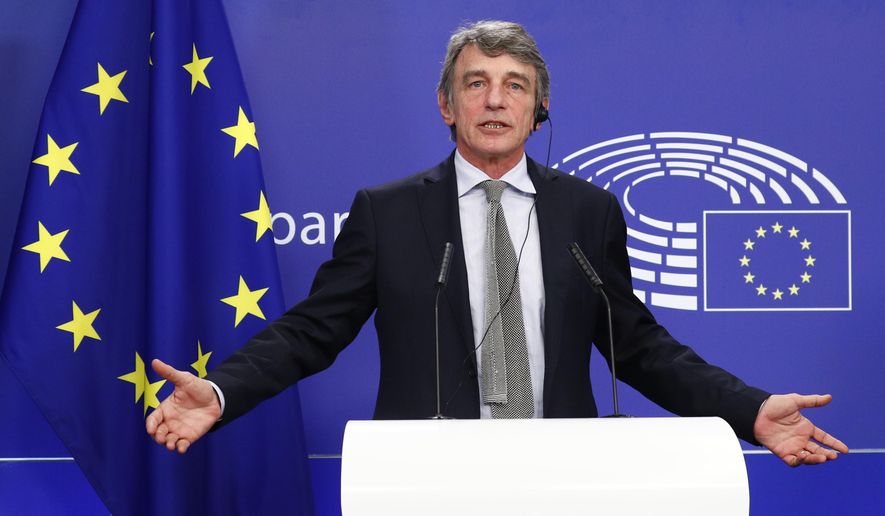BRUSSELS (AP) - The European Parliament’s president criticized Wednesday the cuts to key programs that the EU’s 27 leaders approved in the bloc’s long-term budget at a marathon summit this week.
The seven-year budget worth 1.07 trillion ($1.2 trillion) was negotiated in tandem with a 750 billion-euro ($868 billion) economic recovery package that aims to help EU countries bounce back from the recession caused by the coronavirus pandemic.
Hailed as a “historic” moment for Europe by many EU leaders, the deal on the budget and recovery fund has raised concerns among European lawmakers, who have the final say in approving budgetary changes.
Speaking at a press conference, EU Parliament President David Sassoli welcomed the agreement on the recovery fund but slammed long-term cuts in the budget.
“If we want to bet on future generations, we cannot cut the budget for research and young people,” said Sassoli. He also highlighted planned cuts in migration and asylum policies.
Under pressure from five countries led by the Netherlands known as the “Frugals,” EU leaders had to accept cuts to funds for research and innovation, health, and climate. That went against European Commission President Ursula von der Leyen’s ambition to put environmental issues at the heart of her political agenda.
“We need to support in the medium and long term the EU’s objectives.” said Sassoli, warning that the Parliament would not give its approval to the budget if its conditions are not sufficiently met. “There are a number of points that the Parliament wants to make in a constructive spirit to try and correct some of the mistakes.”
The Commission has rued the budget cuts the EU leaders agreed to but noted that the budget will be only 10 billion euros smaller than the current one despite Britain’s departure from the bloc.
EU lawmakers will sum up their ambitions for the budget in a resolution Thursday before entering negotiations with the bloc’s executive arm and the EU presidency, which rotates between countries and is currently held by Germany. A final vote on the budget at the EU Parliament is not expected to take place before the end of the year.
The economic recovery fund is meant to be paid for in part by future revenues including taxes on digital or carbon taxes. The European Commission hopes they can be introduced by 2023, while Sassoli said they are needed immediately and urged the commission to issue proposals for the new tools as soon as possible.




Please read our comment policy before commenting.